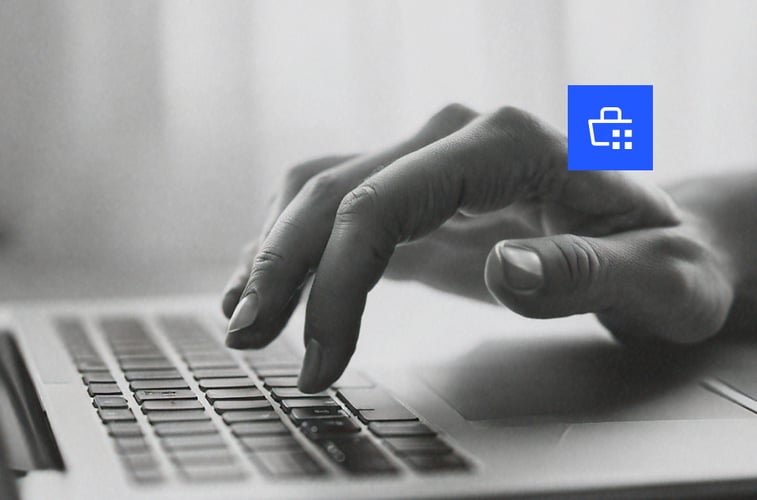The rise of Generative AI is enabling people worldwide to use apps such as ChatGPT to create text, images, audio, and other forms of content. The ease with which AI-generated content can be produced has meant that the use of the software has taken off at a pace that legislation is simply struggling to keep up with.
For creators, marketers, and businesses, it's an era of exciting exploration set against the challenges of working to establish guidelines and understanding evolving legal nuances. While AI is helping us to create all different types of content, the rulebook on how to use the technology is still being written. It's like playing a board game and figuring out the rules as we go along.
AI regulation is different around the world
Different parts of the world have seemingly different take on AI. And none of the new rules are officially in use.
The EU made the first comprehensive draft plan for AI rules in Europe, but it's still in the works. The main idea is to keep AI use transparent, human-centric, ethical, and, importantly, make sure it's safe. The rules also focus on ensuring people know when they see something AI-generated. Luxid’s essential webinar looks at the legal landscape for Generative AI, it assesses the EU AI Act and explores AI and copyright law in marketing. You can watch the full recording here.
The government has laid out a white paper in the UK aiming for a balanced, pro-innovation approach to AI. They are even discussing giving AI-generated content full copyright.
There is a blueprint for an AI Bill of Rights in the US, but no federal legislation for AI exists. Several existing and proposed AI regulatory frameworks paint a complex picture for AI enthusiasts and professionals. Many lawsuits also are ongoing, which might change the rules that are currently being drafted.
In Asia, China doesn't have a single set of rules devoted to AI but has laws such as the Personal Information Protection Law and the Cybersecurity Law that touch on AI topics.
AI, content, and who owns what
Copyright has always protected something made by a person or group of people. But can machine-made content be copyrighted? Right now, the discussion is focused on who could potentially own a copyright with AI-generated content. Is it the person who trained the AI, the person who provided the material the AI was trained with, or the person who commands and guides the AI to get the result? Or it's the person or persons that commissioned the AI activity. Many parties are involved, so it's clearly challenging to prove who owns what with AI-generated content.
In the US, the Copyright Office has stated that fully AI-made content cannot be granted copyright protection. However, if one can demonstrate a fundamental or considerable contribution to an AI-assisted creation, they might find their rightful place in the registered works.
The EU is discussing a new copyright proposition that could potentially recognise AI-generated content. Here, the focus is on transparency – content produced by Generative AI systems must disclose it was AI-generated. In the UK's forward-looking pro-innovation whitepaper, it has been suggested that AI-generated work should have a copyright of up to 50 years. But nothing yet has made its way into law.
What does this mean, and what can I do now?
Not having full intellectual copyright does not mean you are totally without rights. If your AI software license lets you use the produced content commercially, there are many ways to use it.
Low-risk use of AI
Favouring AI-assisted over fully AI-generated content is advisable. This involves ensuring significant human input is visible in the creative process, in the initial prompts, fine-tuning AI outputs through traditional means, and incorporating only portions of AI-generated material in any content. Exactly how much human direction is necessary to gain copyright protection in the US, for example, is still a grey area, but this seems like a good safety measure for now.
Royalty-Free Parallel
Using AI-generated content in cases where you ordinarily use royalty-free assets should be safe, providing you have an AI tool license that gives you commercial use rights. The issue here is similar to royalty-free images or music – a competitor might use the same or similar image or music track.
Stick to Non-IP Subject Matter
Leveraging AI to generate content that doesn't infringe on intellectual property rights, such as generic imagery or themes, is another low-risk strategy.
Using reliable vendors
Opting only for solutions provided by established technology companies - such as Adobe or Microsoft - that have publicly committed to covering any legal complications arising from using their AI tools will also mitigate any risk.
Use in planning & ideation
Of course, using AI purely to help with planning and ideation is a very low-risk scenario, as long as you follow your company's data security protocol and do not feed any classified data into any tools that can be seen as a third party.
High-risk: Exclusive IP Ownership
For areas of marketing where full intellectual property ownership is essential, we strongly advise not using AI-generated content until we have a clear set of guidelines. Such areas include essential brand identity elements such as your logo, content that gives your company a competitive advantage, content you plan to use for merchandising, and characters and settings you could license further and create derivative uses for.
High risk: Unsupervised, autonomous AI content generation
Allowing AI algorithms to create content autonomously presents a considerable copyright risk. Not only that but without human oversight, you are exposed to the risk of inaccuracies or misleading information generated by the AI.
While AI copyright rules are being refined and brought into, here are two good principles of best practice:
- Always read the fine print on AI tool licenses, especially if you're thinking about making money with what you create.
- Different countries, different rules. If you're going global, be aware of that and remember to double-check the situation with the local guidelines.
Luxid’s recent webinar on ‘The legal landscape of generative AI
As this topic is changing all the time - and we have not seen many agencies focus on it - we held a webinar on the EU AI Act on 11th October. Our legal experts examined the upcoming EU AI act, and assessed the legal landscape in general. If you are using or thinking about using generative AI in your marketing, this webinar is essential viewing. You can watch the full recording here.
And if you would like to delve deeper into the legal issues surrounding AI, we’ve put together a list of further reading:
EU:
- A European approach to artificial intelligence | Shaping Europe's digital future (europa.eu)
- The Artificial Intelligence Act | Documents
- MEPs ready to negotiate first-ever rules for safe and transparent AI | News | European Parliament (europa.eu)
UK:
- National AI Strategy | GOV.UK (www.gov.uk)
USA:
- Blueprint for an AI Bill of Rights | OSTP | The White House
- Strategy Documents | National Artificial Intelligence Initiative (ai.gov)
- AI Risk Management Framework | NIST
- Strengthening and Democratizing the US Artificial Intelligence Innovation Ecosystem | An Implementation Plan for a National Artificial Intelligence Research Resource (ai.gov)
China:
- China Takes Friendlier Approach to AI in Finalized Guidelines | Bloomberg
- China to draw up AI regulation in 2023 as Beijing races against EU, US to roll out new laws covering the technology | South China Morning Post (scmp.com)









